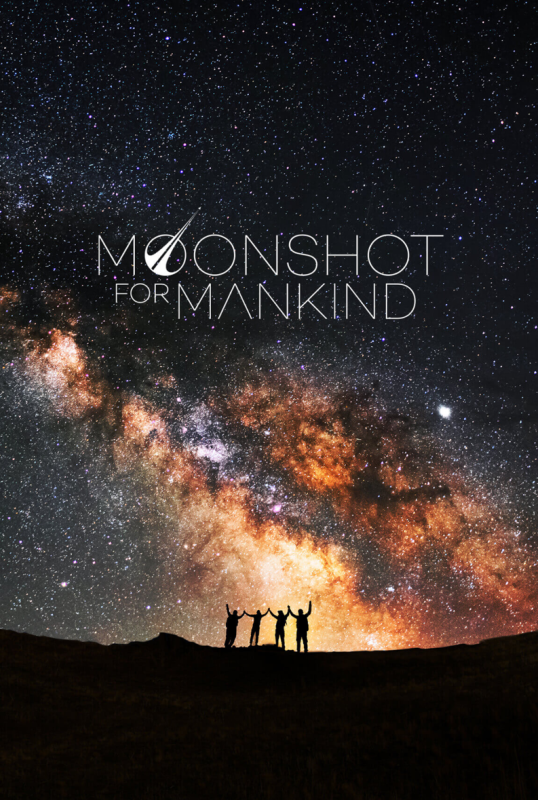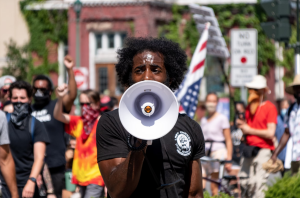The Moonshot for Mankind: Healing Men, Women, and Offering Hope to Humanity

MoonShotForMankind.com
On July 25, 2023, the Moonshot for Mankind, was launched, in partnership with Ubiquity University and Humanity Rising. At this stage of my career, spanning more than fifty years, I want to use the time I still have to make the most positive impact in the world. Research conducted by Randolph Nesse, MD and Daniel Kruger, PhD showed that in every country studied, men, as a group, died younger and suffered from most major diseases at rates higher than women.
The study concluded with three powerful statements:
- “Being male is now the single largest demographic factor for early death.”
- “Over 375,000 lives would be saved in a single year in the U.S. alone if men’s risk of dying was as low as women’s.”
- “If male mortality rates could be reduced to those for females, this would eliminate over one-third of all male deaths below age 50 and help men of all ages.”
In 2021, I invited a number of colleagues whose work was making a positive difference in improving men’s mental, emotional, and relational health to join me in exploring ways we could reach more individuals and organizations who were committed to helping improve the lives of men and their families.
The purpose of the Moonshot Mission is to bring together organizations and individuals throughout the world who are doing significant work to help reduce male mortality, to offer our resources, and coordinate efforts for change. With on-line events July 25, 26, 27, and 28, 2023, the following founding members of the Moonshot for Mankind offered short, keynote talks, led panel discussions, and fielded questions from the audience.
You can learn more about the founding members, their work, and organizations here:
Lisa Hickey and The Good Man Project: https://goodmenproject.com/
Joe Conrad and Man Therapy: https://mantherapy.org/
Shana James and the ManAlive Podcasts: https://shanajamescoaching.com/man-alive-podcast/
Frederick Marx and Warrior Films: https://warriorfilms.org/
MaLe Corona and Male Wholeness: https://malewholeness.com/
Jed Diamond and MenAlive: https://menalive.com/
Words can only say so much about our vision and dream of a better world where men and women work together in true partnership. We invite you to watch the short film that we all worked on together to produce and which was put into form by Joe Conrad and his team at Cactus.
When I began working in the field of gender-specific healing and men’s health, following the birth of our first son on November 21, 1969, there were very few individuals and organizations working with these issues. Now there are thousands. But we often work in isolation and are not aware of what others are doing. One of the purposes of the Moonshot for Mankind is to bring us together.
Based on the individuals and organization I have worked with over the last fifty-plus years, I estimate that there are at least 1,000 organizations and 1,000,000 men and women who are vitally concerned about these issues. Hopefully, in the coming months and years, we can find ways to work together to support men and their families and return to our partnership roots with the community of life on planet Earth.
Lost Men and the Women Who Are Reaching Out to Them
Christine Emba writes about ideas for The Washington Post’s Opinions section. She is the author of Rethinking Sex: A Provocation. In a recent Washington Post opinion essay, “Men Are Lost. Here’s a Map Out of the Wilderness,” she offers many important insights about men in her 6,520-word essay, none truer than these nine words in the last paragraph.
“In the end, the sexes rise and fall together.”
In these times of gender conflict and confusion, Ms. Emba is not afraid to address these issues head on. She says that many of the ancient archetypes of maleness have become stigmatized.
“Men were too assertive, too boisterous, too horny,”
says Ms. Emba.
“But, in fact, most of these features are scaffolded by biology — all are associated with testosterone, the male sex hormone. It’s not an excuse for ‘boys will be boys’-style bad behavior, but, realistically, these traits would be better acknowledged and harnessed for pro-social aims than stifled or downplayed.”
It may seem obvious but we can’t even talk about males without talking about females. They don’t exist as separate entities. Like a coin, they exist together, heads and tails, males and females. The playwright, Tony Kushner, captures this reality.
“The smallest indivisible human unit is two people, not one; one is a fiction,”
says Kushner.
“From such nets of souls societies, the social world, human life springs. And also plays.”
Marianne J. Legato, M.D. is the Director of the Foundation for Gender-Specific Medicine. A pioneer in her field, her discoveries and those of her colleagues have led to establishing sex and gender as important variables in the way we think not just about the treatment of disease, but also health and lifestyle.
“Over the past two decades, we’ve radically revised how we conduct medical research and take care of our female patients,” says Dr. Legato, “and we’ve made valuable discoveries about how gender helps determine vulnerability to illness and, ultimately, the timing and causes of death. But I now believe that we doctors and researchers may have focused too much on women.”
She goes on to say,
“What emerges when one studies male biology in a truly evenhanded way is the realization that from the moment of conception on, men are less likely to survive than women. It’s not just that men take on greater risks and pursue more hazardous vocations than women. There are poorly understood — and underappreciated — vulnerabilities inherent in men’s genetic and hormonal makeup. Men’s troubles begin during the earliest days in the womb. Even though there are more male than female embryos, there are more miscarriages of male fetuses. Industrial countries are also witnessing a decline in male to female birth ratios, and we don’t know why.”
Male vulnerabilities continue throughout men’s lives. Dr. Legato continues saying,
“Even when a boy manages to be born, he’s still behind the survival eight ball: he is three to four times more likely than girls to have developmental disorders like autism and dyslexia; girls learn language earlier, develop richer vocabularies and even hear better than boys. Girls demonstrate insight and judgment earlier in adolescence than boys, who are more impulsive and take more risks than their sisters.”
“Teenage boys are more likely to commit suicide than girls and are more likely to die violent deaths before adulthood. As adults, too, men die earlier than women. Twice as many men as women die of coronary artery disease, which manifests itself a decade earlier in men than women; when it comes to cancer, the news for men is almost as bad,” says Dr. Legato. “Women also have more vigorous immune systems than men: of the 10 most common infections, men are more likely to have serious encounters with seven of them.
“While depression is said to be twice as frequent in women as in men, I’m convinced that the diagnosis is just made more frequently in women, who show a greater willingness to discuss their symptoms and to ask for help when in distress. Once, at a dinner party, I asked a group of men whether they believed men were depressed as often as women, but were simply conditioned to be silent in the face of discomfort, sadness or fear. ‘Of course!’ replied one man. ‘Why do you think we die sooner?’”
Helping men be as healthy as they can be is good for fathers, sons, brothers, husbands as well as mothers, daughters, sisters, and wives. Its good for all humankind.
Sex, Gender, and The Moonshot for Mankind
I have known Dr. Legato and appreciated her work for more than twenty years. In a recent blog post, “Nature Verses Nature,” she addresses the importance of integrating sex and gender issues.
“Perhaps no question sparks more controversy than whether children assume sex roles as a result of their biology or the socialization they’re exposed to. The answer, of course, is probably not an ‘either/or’ but a ‘with’ – some combination of the socialization we receive interacts with our natural biology (itself a knot of complicated and intertwining factors) to turn us into the people we become.”
“As much as some dispute the existence of the ‘feminine’ and ‘masculine’ brain, we’re at a loss to explain how many of these same biases show up in the animal kingdom, if there’s no biological imperative,”
says Dr. Legato.
“UCLA psychologists Gerianne Alexander, PhD, and Melissa Hines, PhD, did an experiment in which they presented vervet monkeys with six toys. The males played more with the truck and ball, while the females chose the doll and a pot; gender-neutral toys (a book and a stuffed dog) got equal attention. Certainly, socialization didn’t influence these subjects!”
Our Moonshot for Mankind will bring together experts and interested men and women who want to understand the mysteries of male and female and all the variations in thought, feeling, and behavior that make us the unique human beings we each are now and will become. We hope you will join us. Please visit us at MoonshotforMankind.com.







